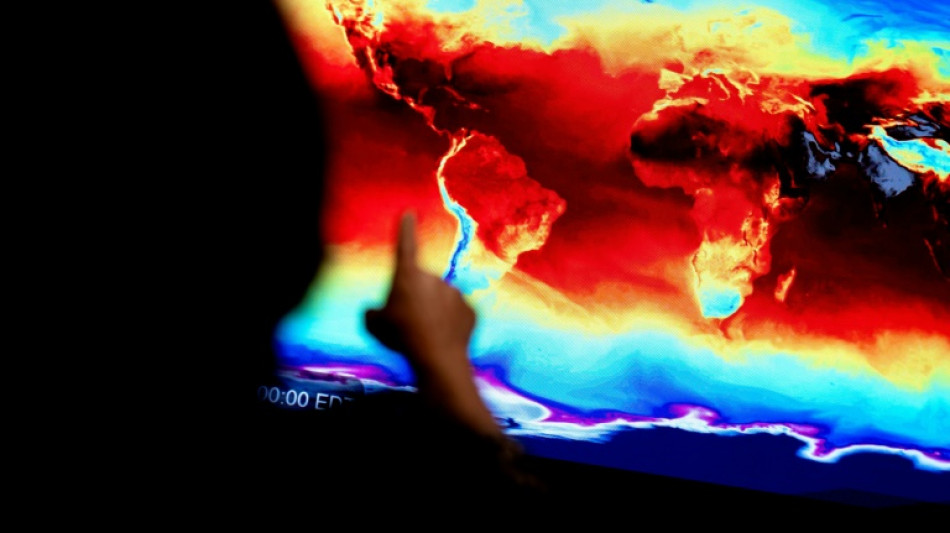
-
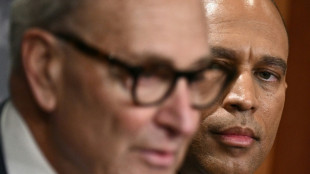 Gold hits record, dollar drops as US shutdown looms
Gold hits record, dollar drops as US shutdown looms
-
Hamas reviewing Trump's Gaza plan
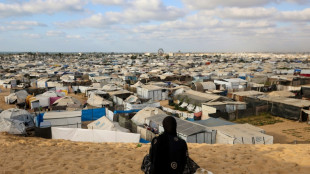
-
 Alcaraz beats Fritz in Tokyo for eighth title of season
Alcaraz beats Fritz in Tokyo for eighth title of season
-
Vietnam jails former officials over gold bar graft: state media

-
 German far-right MP's ex aide jailed for spying for China
German far-right MP's ex aide jailed for spying for China
-
Who will take 30,000 asylum seekers? EU solidarity faces big test
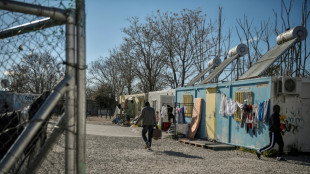
-
 PSG's Kvaratskhelia to miss Barcelona Champions League trip
PSG's Kvaratskhelia to miss Barcelona Champions League trip
-
Endometriosis test backed by French government under scrutiny

-
 Madagascar protesters undeterred despite sacking of government
Madagascar protesters undeterred despite sacking of government
-
Saliba signs new long-term deal at Arsenal

-
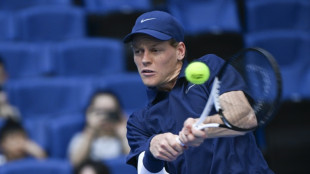 Sinner powers into Beijing final as Gauff survives Bencic test
Sinner powers into Beijing final as Gauff survives Bencic test
-
Madagascar protesters mobilise despite firing of government

-
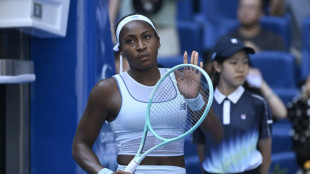 Gauff calls for shorter tennis seasons as 'impossible' to play more
Gauff calls for shorter tennis seasons as 'impossible' to play more
-
Hamas yet to respond on Trump's Gaza plan
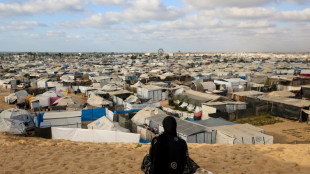
-
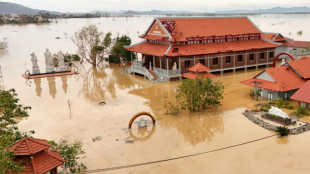 Long-lasting Typhoon Bualoi devastates Vietnam, killing 19
Long-lasting Typhoon Bualoi devastates Vietnam, killing 19
-
Dozens missing, three dead in Indonesia school collapse
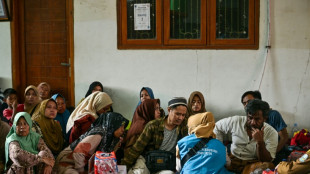
-
 India hot favourites for home Tests against struggling West Indies
India hot favourites for home Tests against struggling West Indies
-
Taliban internet cut sparks Afghanistan telecoms blackout
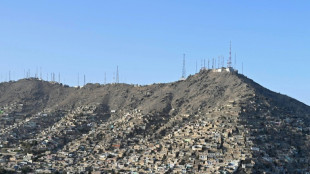
-
 San Siro on course for demolition after sale to Inter and AC Milan approved
San Siro on course for demolition after sale to Inter and AC Milan approved
-
Trial opens over Bangkok murder of French-Cambodian ex-MP

-
 Gauff survives tense Bencic test to reach Beijing quarter-finals
Gauff survives tense Bencic test to reach Beijing quarter-finals
-
US careens toward government shutdown as both parties dig in
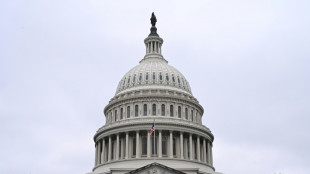
-
 Wolf attack in Greece prompts calls for hunting rights
Wolf attack in Greece prompts calls for hunting rights
-
Trump to address rare mass meeting of US military leaders
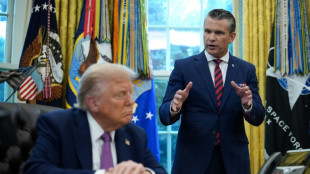
-
 Iranian director Jafar Panahi defies censors again with new film
Iranian director Jafar Panahi defies censors again with new film
-
Taliban impose communications blackout across Afghanistan
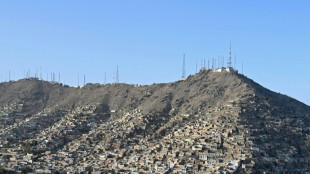
-
 Barca's Yamal eyes up PSG after Ballon d'Or miss
Barca's Yamal eyes up PSG after Ballon d'Or miss
-
PSG facing injury crisis as Barcelona present first big test

-
 British bettor Bloom's football empire blossoming with Belgian club USG
British bettor Bloom's football empire blossoming with Belgian club USG
-
US tariffs on lumber imports set for October 14

-
 Australia lose Maxwell for New Zealand T20s after freak net blow
Australia lose Maxwell for New Zealand T20s after freak net blow
-
India plans mega-dam to counter China water fears
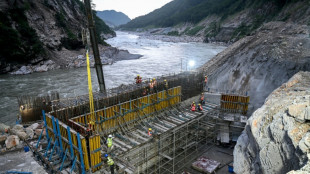
-
 Colombia manufactures its first rifles to replace Israeli weapons
Colombia manufactures its first rifles to replace Israeli weapons
-
Stocks rise, gold hits record as rate cuts and shutdown loom
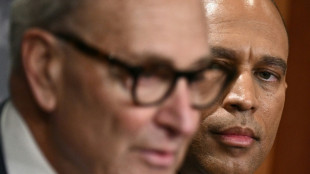
-
 Dolphins star Hill suffers gruesome injury in Jets clash
Dolphins star Hill suffers gruesome injury in Jets clash
-
Paralympics' vote to lift Russian suspension 'bold step' as conflict rages: ex-IOC executive

-
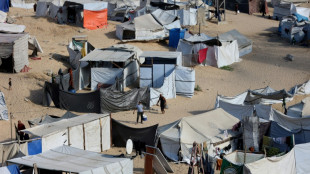 Gazans say Trump's peace plan a 'farce'
Gazans say Trump's peace plan a 'farce'
-
UN Security Council to vote on future of foreign Haiti force

-
 Far-right German MP's ex-aide faces verdict in China spy case
Far-right German MP's ex-aide faces verdict in China spy case
-
YouTube to pay $22 million in settlement with Trump

-
 U.S. Polo Assn. Delivers Elevated Americana With the 2025 Fall-Winter Global Collection From Denver, Colorado
U.S. Polo Assn. Delivers Elevated Americana With the 2025 Fall-Winter Global Collection From Denver, Colorado
-
Internet outrage over Trump's AI conspiracy video
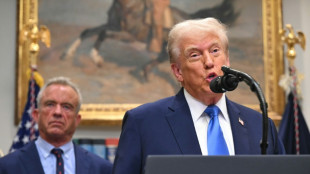
-
 Coalition of states vows to protect access to abortion pill under Trump review
Coalition of states vows to protect access to abortion pill under Trump review
-
Trump meets Democrats without breakthrough on imminent shutdown
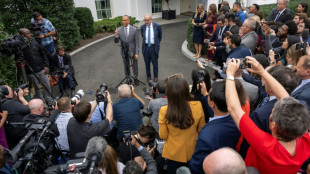
-
 Muslim states join EU powers in backing Trump Gaza plan
Muslim states join EU powers in backing Trump Gaza plan
-
California enacts AI safety law targeting tech giants
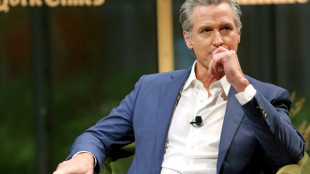
-
 Creator says AI actress is 'piece of art' after backlash
Creator says AI actress is 'piece of art' after backlash
-
Nuno makes his point as West Ham rescue Everton draw

-
 Slot challenges Liverpool players to 'give their all' against Galatasaray
Slot challenges Liverpool players to 'give their all' against Galatasaray
-
Dodgers eye rare repeat as MLB playoffs get under way


Scientists long ago envisioned the end of climate cooperation
They warned it could happen: a world of surging nationalism, stalling economic development and the unravelling of decades of international cooperation on climate change and other global challenges.
Long before Donald Trump lurched away from diplomatic norms and the international rules-based order, scientists mapped out different potential futures to understand the possible implications for greenhouse gas emissions.
Developed a decade ago, five of these "pathways" became crucial to the work of the United Nations' IPCC climate expert panel.
These are not predictions for the 21st century. Rather, they envision what could happen with various societal changes including for trade, economic development, technological innovation and global population.
The most optimistic narrative foresees sustainable growth and improved equality. A second "middle-of-the-road" scenario is an extension of current trends.
The third is a world riven by rivalries, a fourth is blighted by increasing inequality, and the fifth assumes supercharged economic growth grounded in expanding fossil fuel use.
Keywan Riahi, of the International Institute for Applied Systems Analysis, who coordinated the development of the so-called Shared Socioeconomic pathways (SSPs), said the world has largely developed in line with the third scenario in recent years.
While it is certainly not a perfect fit, what we see now "is a much more fragmented world," Riahi told AFP. "Collaboration is more difficult, economic development is actually also not so optimistic."
- 'Rocky Road' -
Scientists' original description of the SSP3 scenario was: "A resurgent nationalism, concerns about competitiveness and security, and regional conflicts push countries to increasingly focus on domestic or, at most, regional issues."
This "rocky road" is arguably the worst of all the hypothetical futures.
Planet-heating emissions are second only to economic expansion driven by oil, gas and coal.
But the fractured SSP3 world ranks first when it comes to damages from climate change, showing the largest population boom, and the weakest economic growth.
This scenario "reflects a current strain of populist isolationist politics that is ascendent today", climate scientist Zeke Hausfather noted in a recent newsletter post.
In 2021, Hausfather got blowback for calling SSP3 "Trump World". But "the actions in his second term around energy and trade seem to be playing out much more closely to SSP3 than other pathways", he said.
The US has ditched the Paris climate treaty, turned its back on global cooperation on science, trade and health, and eviscerating its international development budget.
Washington has lambasted UN sustainable development goals, especially related to climate change and women's rights.
Domestically, the world's second biggest carbon polluter has undermined progress on low-carbon technology, cancelled climate research, and even stymied weather data collection.
World leaders have expressed their disquiet.
"The global economy thrived on a foundation of openness and multilateralism underpinned by US leadership... but today it is fracturing," said European Central Bank President Christine Lagarde in late May.
Canada's Prime Minister Mark Carney declared the global trade system in place for 80 years "over", and China's Xi Jinping urged the preservation of "the international order based on international law, and global fairness and justice".
- Not destiny -
There are important ways in which today's reality differs from the hypothetical SSP3 world.
World population projections are significantly lower, for instance.
And the development of climate tech has been "much more successful", Riahi said.
A dramatic drop in the cost of solar and wind power, as well as electric vehicles and batteries, has boosted the growth of low-carbon technologies.
Carbon dioxide emissions have also slowed, while predicted warming for the end of the century is lower than a decade ago -- albeit still reaching catastrophic levels.
Scientists are currently updating SSP projections and crafting a new set of climate narratives.
They have much to unpack.
Riahi said that even if there was a "complete collapse of climate policies globally", the previous worst-case emissions projections will likely not materialise because clean energy has become so cheap.
At the same time, he said, the world will almost certainly overshoot the Paris deal's aspirational goal of limiting warming to 1.5 degrees Celsius above pre-industrial levels in the coming years.
This has forced scientists to consider a new set of questions.
What is the new best-case scenario for bending emissions down to zero?
If current policies persist, will emissions stay high for a longer period, causing temperatures to keep rising in the coming decades?
"What are the implications climatically of this high overshoot, which is unfortunately a more and more likely scenario if you extrapolate what we see at the moment?" said Riahi.
L.Wyss--VB

